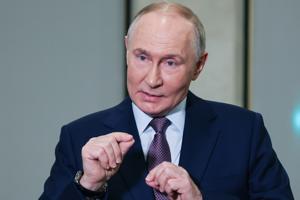U.S. President Donald Trump has shifted his stance on sanctions by targeting two of Russia’s largest oil companies—Rosneft and Gazprom—in a move designed to disrupt funding for the ongoing war in Ukraine. This decision, announced on September 15, 2023, aims to cut off billions of dollars that flow from these state-owned entities to the Russian government.
The sanctions come as part of a broader strategy to hold Russia accountable for its military actions in Ukraine, which have drawn widespread international condemnation. The U.S. Treasury Department indicated that these measures are intended to undermine Russia’s ability to finance its military operations, while also signaling a united front with allies in Europe.
Details of the Sanctions
Under the new sanctions, both Rosneft and Gazprom will face severe restrictions on their international transactions. The financial implications are significant, as these companies are major contributors to the Russian economy. The move is expected to have a profound impact on the global oil market, as Russia is one of the world’s largest oil exporters.
According to the U.S. Treasury, the sanctions will also target individuals and entities connected to these companies, aiming to further isolate Russia economically. The European Union has similarly expanded its sanctions, demonstrating a coordinated effort among Western nations to apply pressure on Moscow.
The financial repercussions for Russia could be substantial. Analysts estimate that the sanctions could affect billions in revenue, which would otherwise be used to support military operations in Ukraine. The international community has been closely monitoring the situation, with many calling for increased pressure on Russia to halt its aggression.
Reactions and Future Implications
The announcement has sparked varied reactions both domestically and internationally. Supporters of the sanctions argue that they are a necessary step in holding Russia accountable for its actions. Critics, however, warn that such measures could lead to further escalation and retaliation from Moscow.
In Washington, D.C., lawmakers are split on the effectiveness of sanctions as a tool for foreign policy. While some advocate for stronger measures, others express concern about the potential economic fallout for global markets. The impact on oil prices could be significant, leading to increased costs for consumers worldwide.
As the situation develops, the international community continues to emphasize the need for a diplomatic resolution to the conflict. The latest sanctions serve as a reminder of the complexities involved in international relations and the challenges of addressing aggression through economic means.
The coming weeks will be critical in determining the effectiveness of these sanctions and their impact on the ongoing conflict in Ukraine. As nations navigate this complex landscape, the focus remains on finding a sustainable solution that ensures peace and stability in the region.








































































